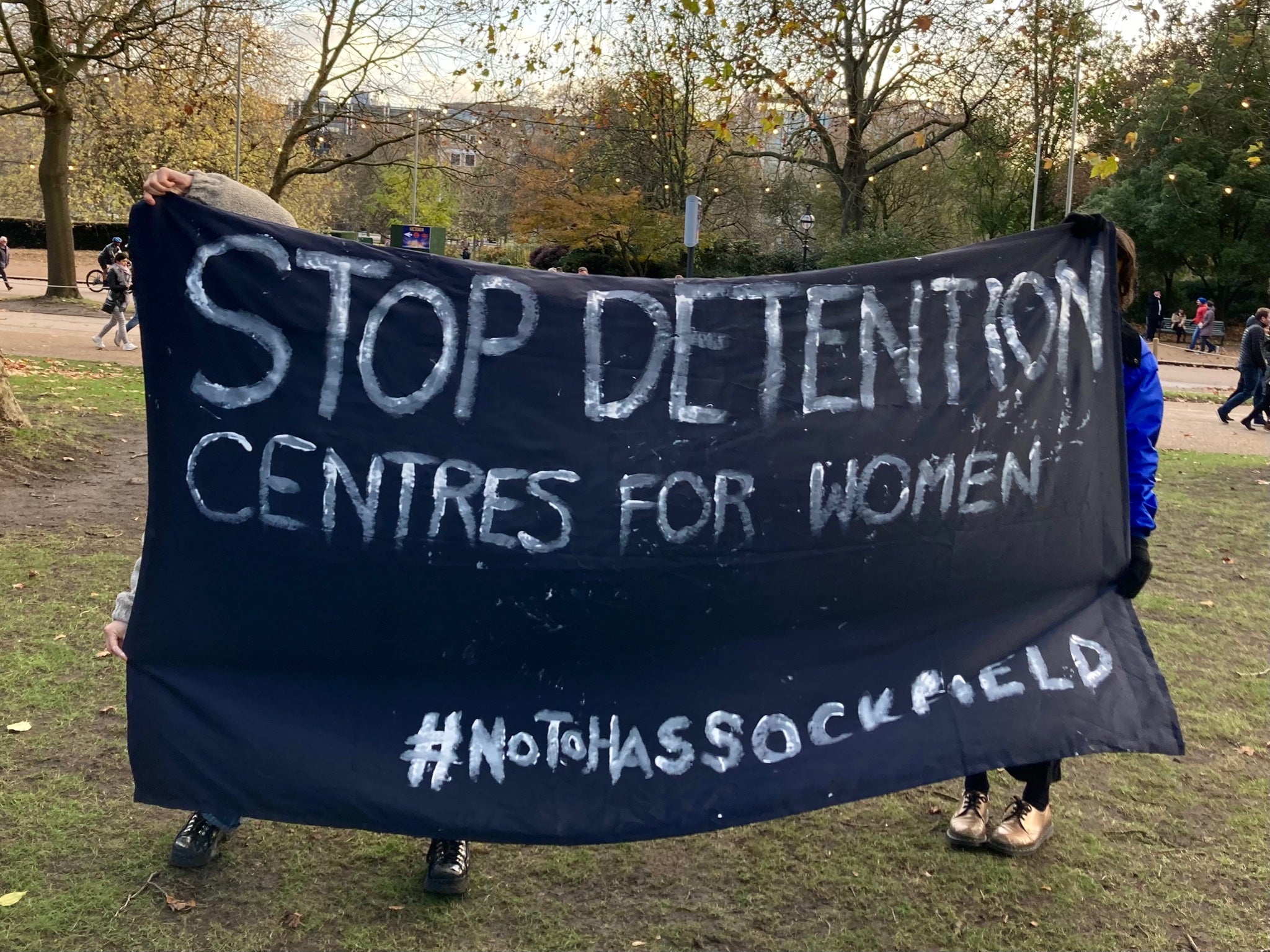Priti Patel faces legal action as women held in detention centre blocked from meeting lawyers
Female detainees at controversial new removal centre told they can only obtain legal advice over the phone

Priti Patel is facing legal action over her decision to lock women in a new immigration centre without giving them access to in-person legal advice.
Around a dozen women were transferred to Derwentside immigration removal centre, a former youth prison in County Durham with a capacity to hold 80 detainees, at the end of December. It replaced Yarl’s Wood as the main site where women are detained for immigration purposes.
The government contracts a number of law firms to attend legal advice surgeries in removal centres across England, during which detainees can receive up to 30 minutes of free legal advice irrespective of financial eligibility.
However, it has emerged that minsters cancelled the process of procuring legal advice provision for the new centre in November 2021, as a result of receiving insufficient compliant tenders that met their minimum requirements.
It was explained that instead, legal aid firms that deliver advice in Yarl’s Wood – most of which are based in London – would also provide legal advice in Derwentside, and that these would take place over the phone.
Charity Women for Refugee Women is now mounting a legal challenge against the Home Office for failing to deliver in-person legal aid advice, warning that it will “exacerbate” difficulties women already face in disclosing experiences of sexual or gender-based violence and have “significant negative consequences” for women in detention.
A Home Office spokesperson told The Independent that in-person meetings were “also now able to take place on request”. Women for Refugee Women said they were not aware of any face-to-face visits taking place since the site opened.
A woman detained at Derwentside, who is issuing a separate legal challenge over the same issue, said she was detained in the centre for a week and a half before she was able to get a lawyer – days before she was due to be removed from the country.
“I spoke with many employees here about getting a lawyer, but they gave me excuse after excuse, always telling me to come back tomorrow,” she said.
“I was really struggling and suffering. If I hadn’t received good legal representation, I would have been removed by now and I’m afraid that I would be dead.”
The charity said the problems that women face in disclosing traumatic experiences over the phone were being “further intensified” by the fact that the mobile reception at Derwentside is “very poor”.
It also appears to be difficult for women to find quiet and private spaces within the centre that have mobile reception, which poses an additional barrier to disclosure, the charity said.
Dr Juliet Cohen, an independent forensic physician who has provided an expert report in support of the legal challenge, and who has clinical experience of assessing many women who are survivors of trafficking and gender-based violence, said she had “no doubt” that remote assessments would run the risk of being “partial and incomplete”.
Agnes Tanoh, detention campaign spokesperson at Women for Refugee Women, who was herself detained at Yarl’s Wood detention centre for over three months in 2012, meanwhile said: “From my own experience I know how important it is to meet your solicitor and build trust so that you can tell them your story. Body language is so important.
“To see a warm and kind face is like a hug when you need it most. Imagine having to tell a stranger about the most horrific intimate violence you have suffered. It’s not right. Women seeking safety should be able to live freely in their communities and have access to justice.”
Shalini Patel, public law solicitor at Duncan Lewis, who is representing the charity in the case, said the decision to detain women at Derwentside despite the issues with access to face-to-face legal advice was “extremely concerning” and would “severely restrict the detainees’ fundamental right to access of justice”.
A Home Office spokesperson said: “Derwentside immigration removal centre opened during a global pandemic and our priority throughout has been to take proportionate steps to ensure the safety of residents and staff.
“Individuals have always been able to contact their legal representatives easily by telephone, email and video call – and also receive 30 minutes free advice through the legal aid scheme.”
Join our commenting forum
Join thought-provoking conversations, follow other Independent readers and see their replies
Comments